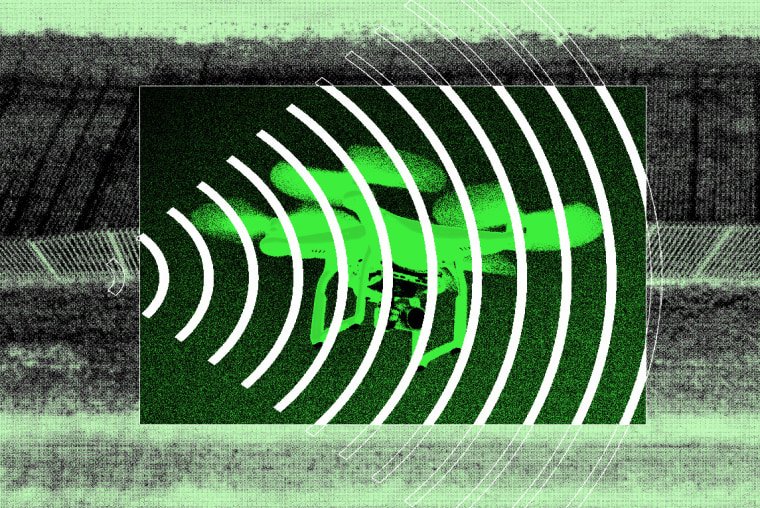{{Wondering|Questioning} {How To|Easy Methods To|Find Out How To|How O…
페이지 정보
작성자 Amparo Poore 댓글 0건 조회 24회 작성일 24-07-22 13:11본문
The majority of people do not know what internet-based cyberbullying is or how unsafe it can be to an individual. Cyberbullying is undesirable and frequently aggressive habits targeted at a particular person that happens through using innovation devices and digital communication methods. A cyberbully may use a cellphone to repeatedly send offensive, insulting, threatening or painful text messages to you, or might use social networks to post reports or share personal details about you. Not all regions have cyberbullying statutes, and a lot of the regions that do have them define that they only apply to higher education students or minors (because "bullying" normally occurs among children and teens). In addition, not all states criminalize cyberbullying but rather might require that schools have policies in place to deal with all forms of bullying among students. If you are experiencing cyberbullying and your state doesn't have a cyberbullying statute, it's possible that the abuser's habits is forbidden under your state's stalking or harassment ordinances (furthermore, even if your community does have a cyberbullying ordinance, your jurisdiction's stalking or harassment regulations may also protect you).
 If you're a first-year student experiencing on line abuse by anyone who you are or were dating and your state's domestic abuse, stalking, or harassment ordinances don't cover the specific abuse you're experiencing, you may want to see if your region has a cyberbullying legislation that might use. For instance, if an abuser is sharing an intimate image of you without your authorization and your community does not have a sexting or nonconsensual image sharing dictate, you can check to see if your state has a cyberbullying dictate or policy that prohibits the habits. Whenever you get a chance, you probably want to look at this topic more in depth, by visiting this their site frequency jammer ...!
If you're a first-year student experiencing on line abuse by anyone who you are or were dating and your state's domestic abuse, stalking, or harassment ordinances don't cover the specific abuse you're experiencing, you may want to see if your region has a cyberbullying legislation that might use. For instance, if an abuser is sharing an intimate image of you without your authorization and your community does not have a sexting or nonconsensual image sharing dictate, you can check to see if your state has a cyberbullying dictate or policy that prohibits the habits. Whenever you get a chance, you probably want to look at this topic more in depth, by visiting this their site frequency jammer ...!
Doxing is a typical technique of on line harassers, and an abuser might utilize the details s/he learns through doxing to pretend to be you and request for others to bug or attack you. See our Impersonation page to learn more about this type of abuse. There might not be a regulation in your community that specifically identifies doxing as a crime, but this behavior may fall under your state's stalking, harassment, or criminal hazard mandates.
It is typically a great concept to keep track of any contact a harasser has with you if you are the victim of internet-based harassment. You can discover more information about recording technology abuse on our Documenting/Saving Evidence page. You may also be able to alter the settings of your internet profiles to forbid an abuser from utilizing specific threatening expressions or words.
 In many regions, you can apply for a suppressing order versus anyone who has actually stalked or harassed you, even if you do not have a particular relationship with that individual. In addition, the majority of states include stalking as a factor to get a domestic violence restraining order, and some include harassment. Even if your area does not have a particular inhibiting order for stalking or harassment and you do not get approved for a domestic violence inhibiting order, you might have the ability to get one from the criminal court if the stalker/harasser is arrested. Given that stalking is a crime, and in some jurisdictions, harassment is too, the authorities might jail a person who has actually been stalking or bothering you. Usually, it is a good idea to monitor any contact a stalker/harasser has with you. You may wish to track any cell phone calls, drive-bys, text messages, voicemails, web mails, so print out what you can, with headers consisting of date and time if possible, or anything the stalker or harasser does, that harasses you or makes you afraid.
In many regions, you can apply for a suppressing order versus anyone who has actually stalked or harassed you, even if you do not have a particular relationship with that individual. In addition, the majority of states include stalking as a factor to get a domestic violence restraining order, and some include harassment. Even if your area does not have a particular inhibiting order for stalking or harassment and you do not get approved for a domestic violence inhibiting order, you might have the ability to get one from the criminal court if the stalker/harasser is arrested. Given that stalking is a crime, and in some jurisdictions, harassment is too, the authorities might jail a person who has actually been stalking or bothering you. Usually, it is a good idea to monitor any contact a stalker/harasser has with you. You may wish to track any cell phone calls, drive-bys, text messages, voicemails, web mails, so print out what you can, with headers consisting of date and time if possible, or anything the stalker or harasser does, that harasses you or makes you afraid.
 If you're a first-year student experiencing on line abuse by anyone who you are or were dating and your state's domestic abuse, stalking, or harassment ordinances don't cover the specific abuse you're experiencing, you may want to see if your region has a cyberbullying legislation that might use. For instance, if an abuser is sharing an intimate image of you without your authorization and your community does not have a sexting or nonconsensual image sharing dictate, you can check to see if your state has a cyberbullying dictate or policy that prohibits the habits. Whenever you get a chance, you probably want to look at this topic more in depth, by visiting this their site frequency jammer ...!
If you're a first-year student experiencing on line abuse by anyone who you are or were dating and your state's domestic abuse, stalking, or harassment ordinances don't cover the specific abuse you're experiencing, you may want to see if your region has a cyberbullying legislation that might use. For instance, if an abuser is sharing an intimate image of you without your authorization and your community does not have a sexting or nonconsensual image sharing dictate, you can check to see if your state has a cyberbullying dictate or policy that prohibits the habits. Whenever you get a chance, you probably want to look at this topic more in depth, by visiting this their site frequency jammer ...!Doxing is a typical technique of on line harassers, and an abuser might utilize the details s/he learns through doxing to pretend to be you and request for others to bug or attack you. See our Impersonation page to learn more about this type of abuse. There might not be a regulation in your community that specifically identifies doxing as a crime, but this behavior may fall under your state's stalking, harassment, or criminal hazard mandates.
It is typically a great concept to keep track of any contact a harasser has with you if you are the victim of internet-based harassment. You can discover more information about recording technology abuse on our Documenting/Saving Evidence page. You may also be able to alter the settings of your internet profiles to forbid an abuser from utilizing specific threatening expressions or words.
 In many regions, you can apply for a suppressing order versus anyone who has actually stalked or harassed you, even if you do not have a particular relationship with that individual. In addition, the majority of states include stalking as a factor to get a domestic violence restraining order, and some include harassment. Even if your area does not have a particular inhibiting order for stalking or harassment and you do not get approved for a domestic violence inhibiting order, you might have the ability to get one from the criminal court if the stalker/harasser is arrested. Given that stalking is a crime, and in some jurisdictions, harassment is too, the authorities might jail a person who has actually been stalking or bothering you. Usually, it is a good idea to monitor any contact a stalker/harasser has with you. You may wish to track any cell phone calls, drive-bys, text messages, voicemails, web mails, so print out what you can, with headers consisting of date and time if possible, or anything the stalker or harasser does, that harasses you or makes you afraid.
In many regions, you can apply for a suppressing order versus anyone who has actually stalked or harassed you, even if you do not have a particular relationship with that individual. In addition, the majority of states include stalking as a factor to get a domestic violence restraining order, and some include harassment. Even if your area does not have a particular inhibiting order for stalking or harassment and you do not get approved for a domestic violence inhibiting order, you might have the ability to get one from the criminal court if the stalker/harasser is arrested. Given that stalking is a crime, and in some jurisdictions, harassment is too, the authorities might jail a person who has actually been stalking or bothering you. Usually, it is a good idea to monitor any contact a stalker/harasser has with you. You may wish to track any cell phone calls, drive-bys, text messages, voicemails, web mails, so print out what you can, with headers consisting of date and time if possible, or anything the stalker or harasser does, that harasses you or makes you afraid.- 이전글EmilianoKicioca gyp 24.07.22
- 다음글What Donald Trump Can Teach You About Live Poker Online 24.07.22
댓글목록
등록된 댓글이 없습니다.
 카톡상담
카톡상담